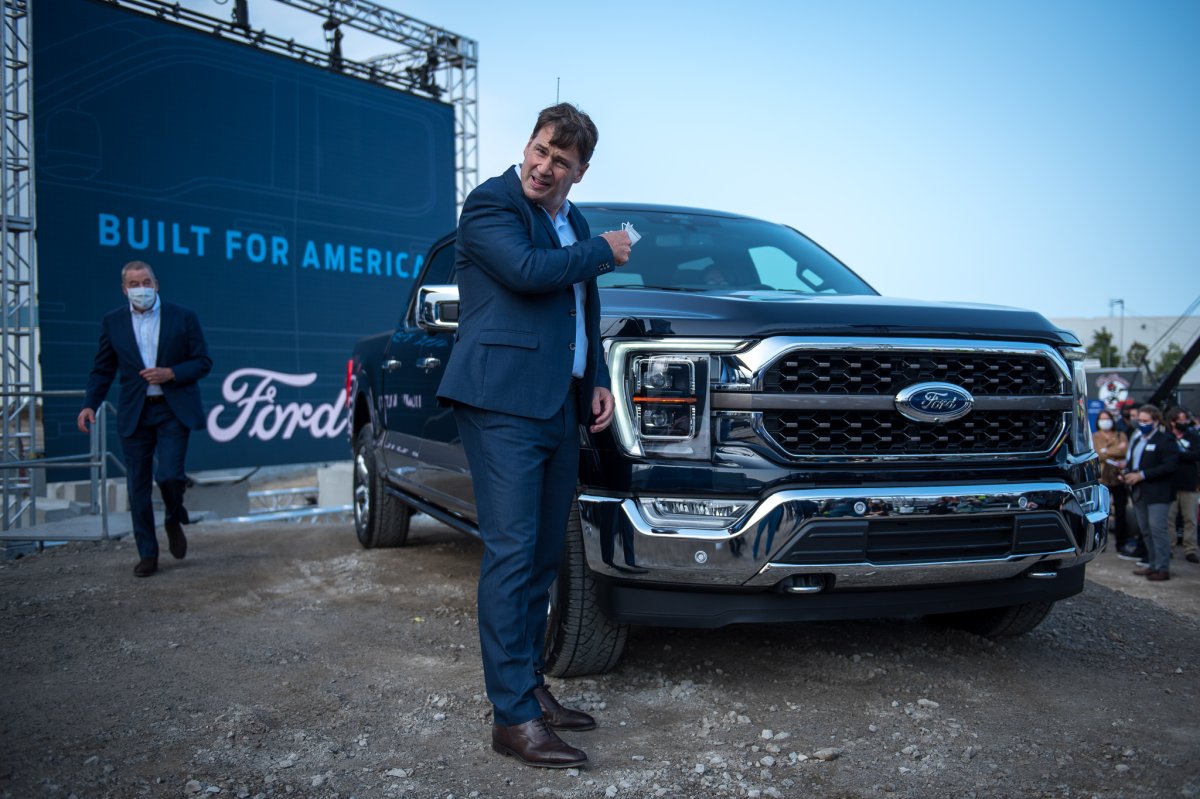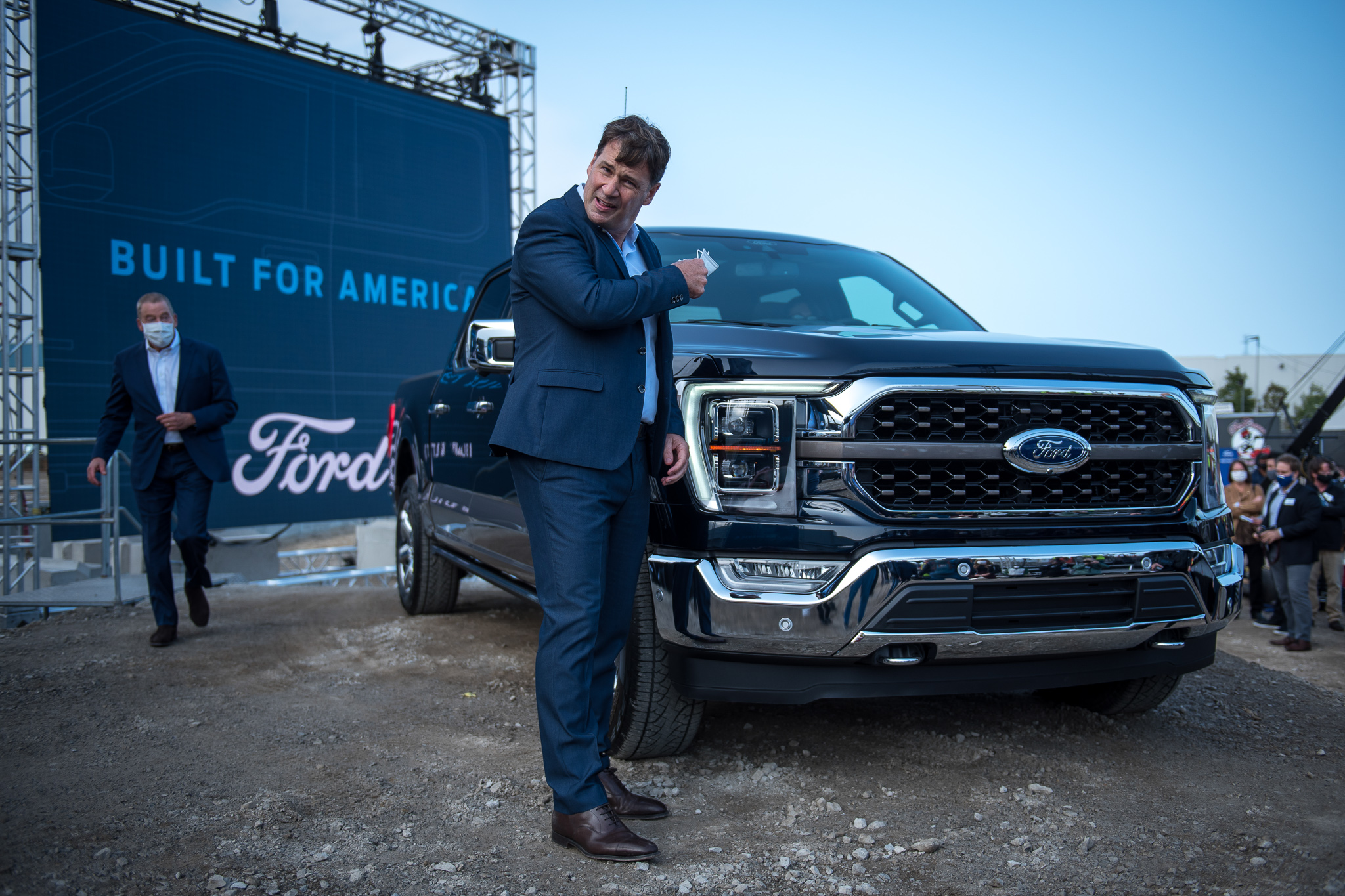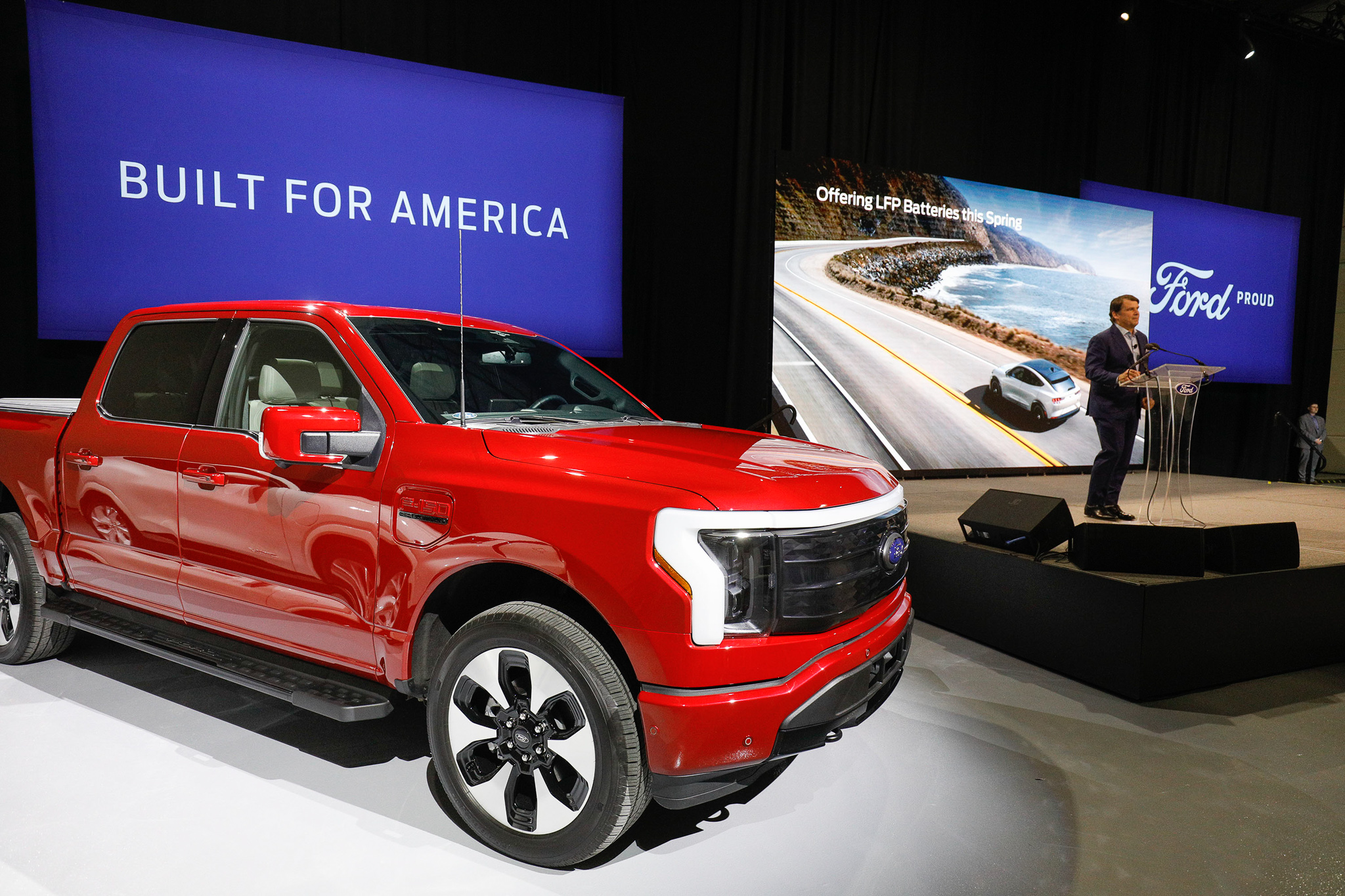Ford quit sedans in 2019, and the F-150 prints money. Still, Jim Farley says buyers need to get over their love for "monster vehicles."

www.thedrive.com
Ford CEO Wants Americans to ‘Get Back in Love’ With the Small Cars Ford Gave Up On
Ford quit sedans in 2019, and the F-150 prints money. Still, Jim Farley says buyers need to get over their love for "monster vehicles."
JOSÉ RODRÍGUEZ JR
Posted On Jul 2, 2024 3:45 PM EDT
3 Minute Read
Nic Antaya via Getty
After
killing off sedans and
small cars in 2019, Ford CEO
Jim Farley is now extolling their virtues and calling on Americans to fall back in love with smaller vehicles. That’s strange coming from an automaker that phased out small cars to focus on SUVs and
pickup trucks, which seem to get bigger every generation. Ford is the preeminent maker of large vehicles in the U.S., what with the
F-150 consistently being the best-selling model in the country every year. But now that
EVs are the future we’re slowly but surely heading toward, Farley says America has to get over so-called “monster vehicles,” and get back to small cars, as
CNBC reports.
You could say that Ford had an outsized role in steering us away from small cars and popularizing “monster vehicles,” so Farley’s statements are a bit frustrating. Just don’t read this as a newfound fondness for the kinds of cars that dominate markets overseas, such as those in Europe and
China. Even in the U.S., Ford rivals like GM are
seeing success with new small(ish) cars like the
Chevy Trax.
The CEO of Ford tells
CNBC that bigger vehicles have major weight issues, however, and goes on to explain how this is hurting the production of EVs due to the cost of batteries, saying, “You have to make a radical change as an [automaker] to get to a profitable EV. The first thing we have to do is really put all of our capital toward smaller, more affordable EVs […] These big, huge, enormous EVs, they’re never going to make money. The battery is $50,000. … The batteries will never be affordable.”
So, Farley isn’t exactly mourning the loss of the Ford Fiesta or protesting the Ford Puma’s absence in the U.S (although, in the Puma’s case,
he has before). Farley’s preference for small cars is, of course, driven by his duty as CEO to increase profit. Now that Ford is reportedly aiming to make a $30,000 EV by 2027, which must be small to be profitable, Farley is trying to nudge people in the U.S. back to the very thing Ford turned away from. The chief executive went on to say, “We have to start to get back in love with smaller vehicles. It’s super important for our society and for EV adoption […] We are just in love with these monster vehicles, and I love them too, but it’s a major issue with weight.”
Ford later clarified to reporters that Farley was referring to large vehicles like the F-Series Super Duty, which would need massive batteries to achieve ranges of 500 miles or more, per
CNBC. But that doesn’t really let Ford off the hook, because, for one, the company reiterates the fact that big heavy EVs are not viable, and, two, it lambastes the need for longer mile ranges, which some buyers in the U.S. continue to insist upon.
Outside of America, the best-selling EV models are compact vehicles with small batteries that yield comparatively low range. In China, the base model
Wuling Hong Guang Mini EV gets under 100 miles of range, although it can go up to around 170 miles. Or, closer to home, the
BYD Dolphin Mini for sale in
Mexico can achieve just under 200 miles (on the NEDC testing cycle). It’s these kinds of small
Chinese EVs that Ford and many others now fear. Farley added, “If we cannot make money on EVs, we have competitors who have the largest market in the world, who already dominate globally, already setting up their supply chain around the world,” he said. “And if we don’t make profitable EVs in the next five years, what is the future? We will just shrink into North America.”
Still, it’s notable that, even in North America, Ford is hinting at the return of small cars. It’s unlikely that Ford will ever make models to compete with the smallest Wuling and BYD EVs, but, at the very least, Ford could once again be embracing small entry-level cars in the U.S. Perhaps one day, we might see the electrified return of neat little vehicles like the Ford Fiesta ST, Focus SVT, Escort ZX2 or Probe. OK, probably not, but a guy can dream.
Got tips? Send ’em to tips@thedrive.com










 How I look this day and age waiting for a bus in pouring rain?
How I look this day and age waiting for a bus in pouring rain?